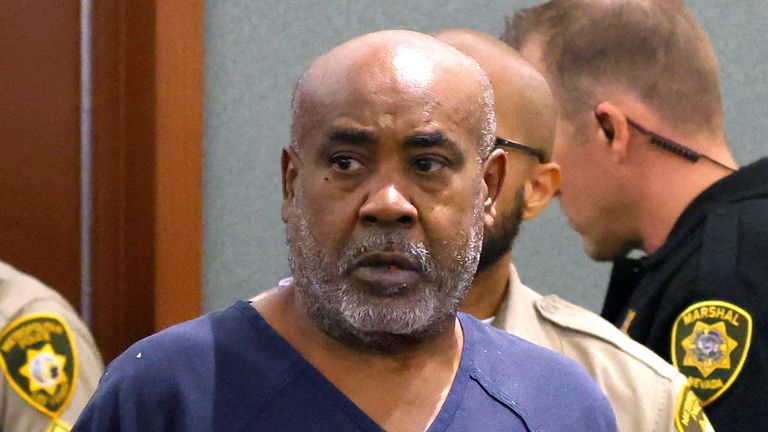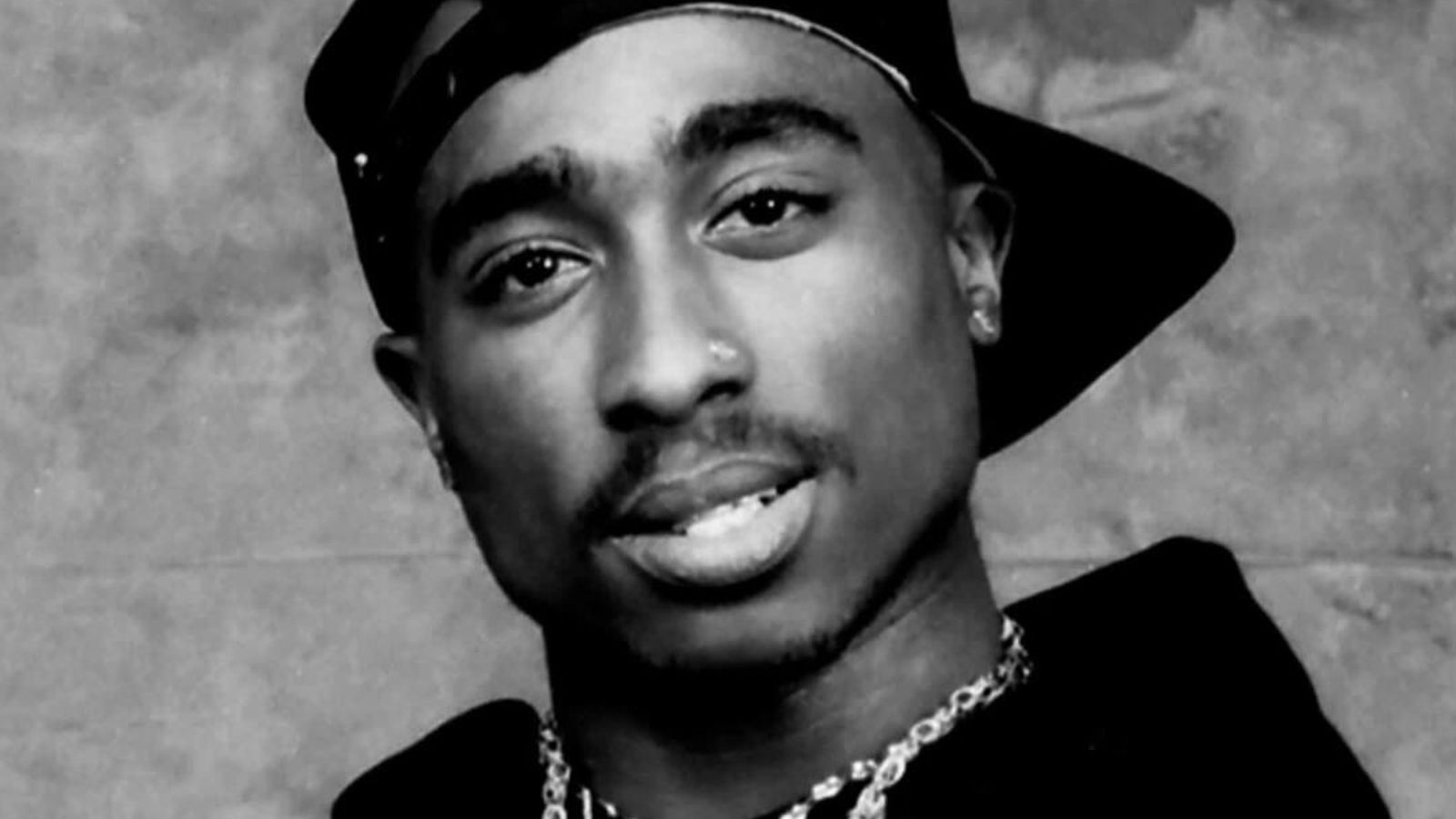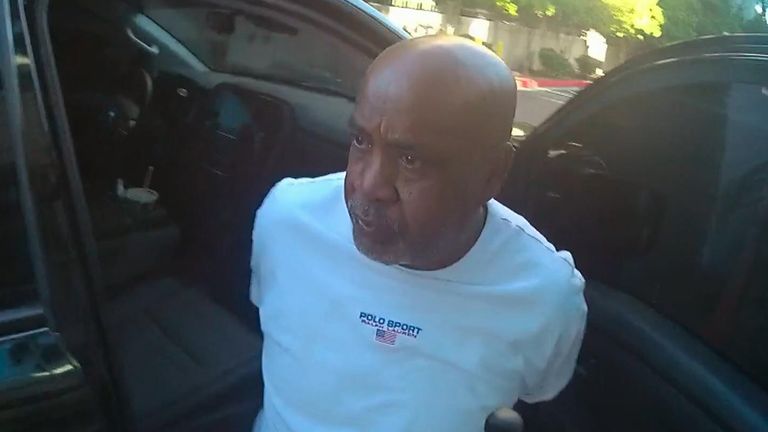
Witnesses in the case of a man charged with orchestrating the 1996 murder of Tupac Shakur may be the target of a kill order, prosecutors have warned.
Duane “Keffe D” Davis, an ex-gang leader from Compton, California, is the only person still alive who was in the vehicle from which shots were fired towards the hip-hop icon.
He is also the only person ever charged in connection with the case, and has denied involvement in the killing.
Ahead of his trial, prosecutors have alleged that members of his family have been handed a list of witnesses and a “green light” order to kill has been given.
The order was allegedly detailed during a phone call between Davis and his son on 9 October, and led to at least one witness changing their residence.
Prosecutors Marc DiGiacomo and Binu Palal said in a court filing there were “credible threats to witnesses” that demonstrate Davis “poses a danger to the community”.
There is no reference in the filing to Davis instructing anyone to harm anyone or to anyone associated with the case being harmed, but the prosecutors argue he should remain behind bars until his trial begins in June.
One of Davis’s court-appointed lawyers, Robert Arroyo, questioned the alleged phone call between him and his son, saying witnesses were not mentioned “let alone threatened”.
Davis’s lawyers have argued the 60-year-old is not dangerous and would not flee to avoid trial if freed from jail, where they claim he’s not receiving proper medical attention following a cancer diagnosis.
Read more:
The story of Tupac Shakur
He was put behind bars following his arrest in a Las Vegas suburb on 29 September.
Prosecutors have said that by his own admission, Davis was the “shot-caller” in the death of Shakur and has all but confessed during police interviews and a 2019 memoir.
His lawyers say his accounts of the drive-by shooting were “done for entertainment purposes and to make money”.
Davis has also said he was given immunity by a 2008 agreement with the FBI and Los Angeles police.
He could spend the rest of his life in prison if convicted.













